In a not-so-unexpected turn of events, this year’s Oscar shortlist for Best Original Song isn’t entirely living up to its name. For years, the category has been infested with obligatory musical nominations and celebrity name-brand pomp, cementing its reputation as one of the least meritocratic categories in a ceremony that has already seeped into politics. Still, this year is especially glaring in its omission of several fantastic original songs from both expected and unexpected places, suggesting the category is especially caving to its own popularity contest.
This past week, “Barbie” garnered three spots on the shortlist (expected but still outrageous) while “Flora and Son” and “The Color Purple” each earned two. Out of the 15 songs selected, over half of them are songs exclusively featured during the credits, the majority of which are written by household names like Olivia Rodrigo, Lenny Kravitz, and, of course, stalwart Diane Warren, who, like John Williams in Best Original Score, appears to earn nominations by merely existing. This is not to say any of the nominated songs are of poor quality, but the simple truth is that the abundance of bias is near-explicit.
Well, what’s missing? Well, quite a lot. According to Variety, there were 92 eligible songs, a striking number of which were not merely end credits songs but compositions weaved into the fabric of their film’s storytelling. “This Wish” from “Wish,” Disney’s big bid for a nomination, is nowhere to be seen, along with anything else from “Wish,” “The Little Mermaid” (Halle Bailey instead is represented through “The Color Purple“) and “Elemental” (which earned a shortlist spot for Best Original Score). This is the first time since 1998 that Disney has submitted songs for consideration and missed the shortlist.
Other musicals, like “Wonka” and “Dicks: The Musical,” are absent, as well as popular musical numbers from “The Super Mario Bros. Movie,” “Theater Camp,” and “Trolls Band Together.” Even another strong end credits song, such as “Spinning Globe” from “The Boy and The Heron,” as opposed to a selection from one of the multi-nominated films, would have alluded to at least an effort in showcasing diversity. To counteract all of this, we present to you five songs that not only deserved a spot on the shortlist but would have merited a spot in the final five.
“A World Of Your Own” from “Wonka”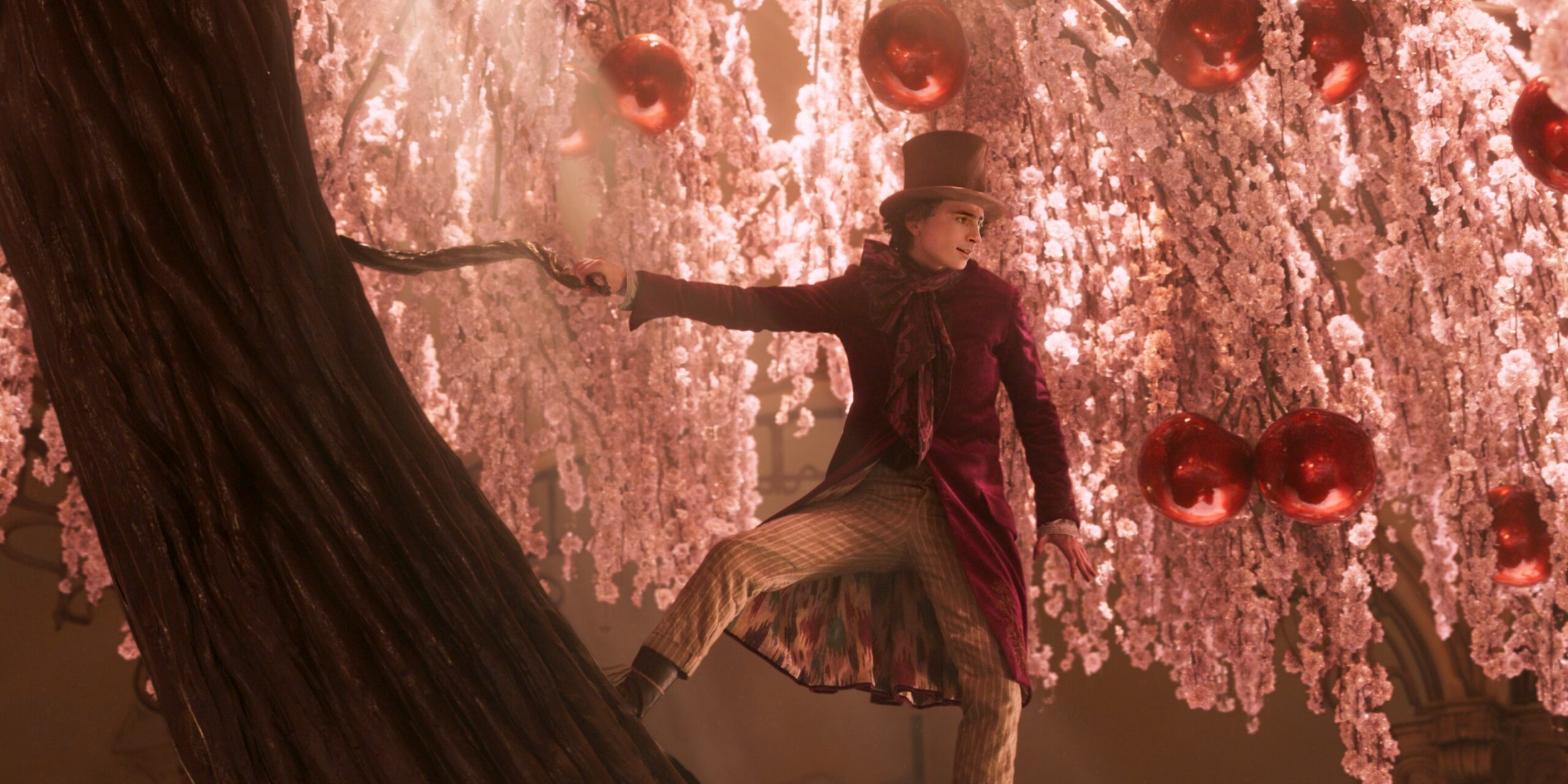 Music by Neil Hannon
Music by Neil Hannon
Lyrics by Neil Hannon, Simon Farnaby, and Paul King Performed by Timothee Chalamet
When you first hear “A World Of Your Own” from “Wonka,” oddly the only song from the film Warner Bros. placed into consideration, it immediately sounds like a song that would be nominated at the Oscars. It’s infectiously upbeat, sung by a movie star (albeit not one known for his musical talent), and paired with one of the film’s most memorable scenes, in which Willy Wonka (Timothee Chalamet) first opens his candy store to the adoring public of The Gallery Gourmet. Reminiscent of late-’60s pop rock but infused with the whimsy of magical realism, it’s an earworm that wriggles into your brain almost immediately and perfectly captures the essence of Paul King’s updated Willy Wonka, a more Mary Poppins-esque figure filled with child-eyed wonder and charm. Built on a strong groove and perfect brass accents, this is not only one of the best songs not included in the shortlist but one of the best on-screen songs of the year.
The fact that not a single song from “Wonka” made the cut is egregious and heavily under-promotes the marvelous work done by singer-songwriter Neil Hannon. Hannon, frontman of the famous Irish Britpop band The Divine Comedy, proves to have a firm grasp on Capital M Musical storytelling, a transition other pop songwriters fail to make. Any one of his songs would have made for strong winners (Calah Lane’s work on “For A Moment” hits the spot especially), but “A World Of Your Own” is the film’s most symbolically resonant song after “Pure Imagination.” The Bricusse-Newley classic is, of course, not eligible, so Hannon wrote his own harmonically lush tune inviting viewers to give into their own wondrous fantasy. It’s also the film’s most glowing showcase for Chalamet as a singer, who, despite being a theater kid in high school, came to the project with a lot to prove. Now, thanks to the Academy’s music branch, we won’t get to see Chalamet perform at the Oscars, an offense that deserves rightful punishment.
“Live That Way Forever” from “The Iron Claw”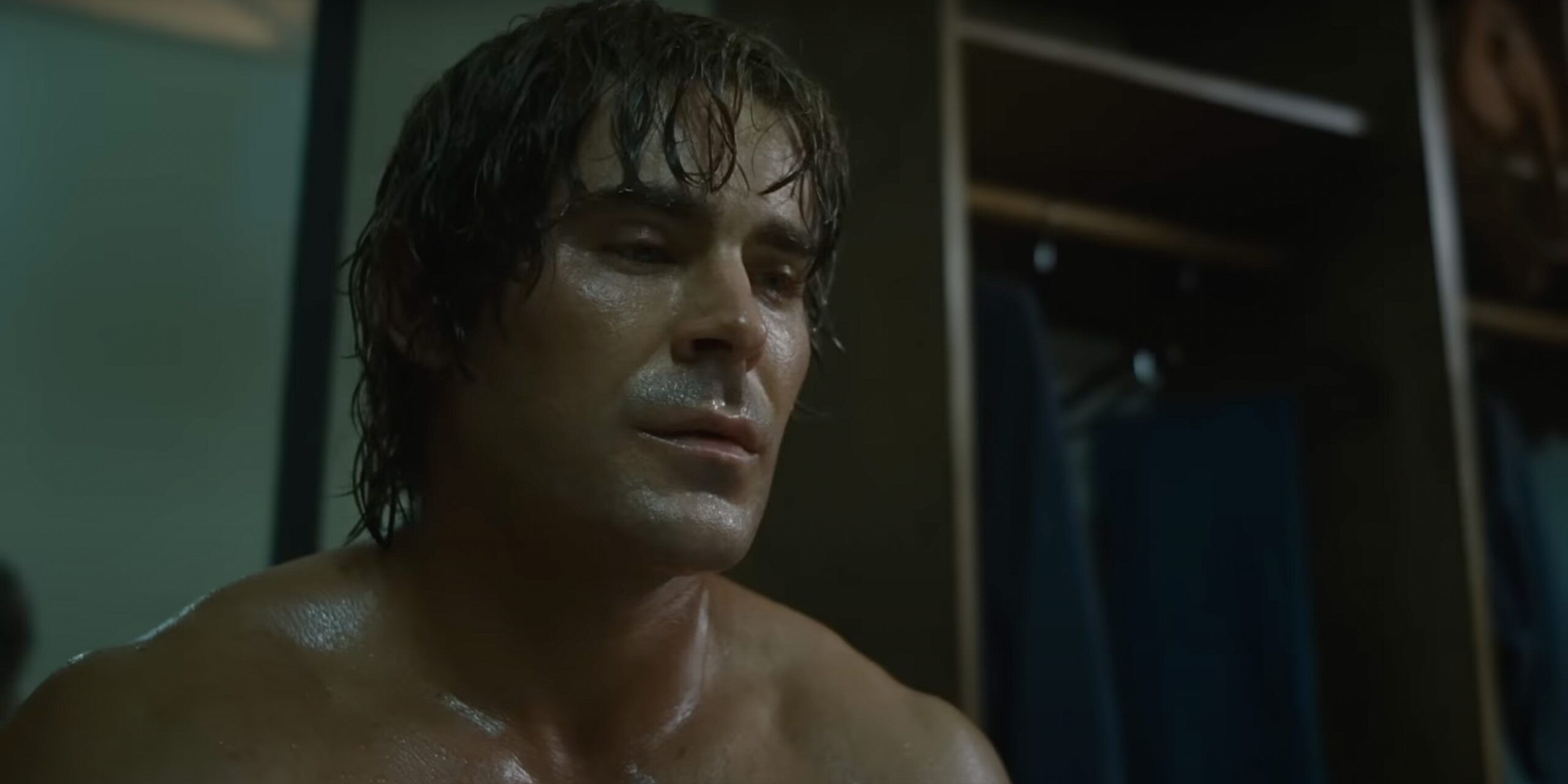 Music and Lyrics by Laurel Sprengelmeyer (Little Scream) and Richard Reed Perry Performed by Laurel Sprengelmeyer (Little Scream) and Richard Reed Perry
Music and Lyrics by Laurel Sprengelmeyer (Little Scream) and Richard Reed Perry Performed by Laurel Sprengelmeyer (Little Scream) and Richard Reed Perry
Contrary to popular belief, the Best Original Song category is not exclusive to made-for-radio credits songs or musical numbers. In fact, this category shines the brightest when it highlights neither of these things, proving that an original song can serve many unique purposes in a film and deserves recognition so long as it elevates the storytelling. This is the case with “Live That Way Forever,” a bangin’ rock song first introduced diegetically during the film’s party scene. The youngest Von Erich brother, Mike (Stanley Simons), performs at a college party with his band as his brothers cheer him on and dance with the crowd. It’s a sweet moment of brotherly bonding underscored with lyrics about loving the way things are and not wanting them to change. It’s one of the many innocent, wholesome moments that make the film’s second half all the more devastating.
The song is a collaboration between Arcade Fire’s Richard Reed Perry, the film’s composer, and Laurel Sprengelmeyer, known to most as Little Scream. They do their own cover of the song for the film’s final scene and end credits, which cements the song as a symbolic ode to the beautiful love the Von Erich brothers shared and the legacy they leave for Kevin (Zac Efron) and his family. Painted with long guitar tones and a somber but emotionally resonant chord progression, it fits perfectly within the musical palette set by Perry within the film, making it all the more successful as a storytelling tool. Unlike a musical number, which blatantly points attention to itself, “Live That Way Forever” feels quietly embedded in the film’s emotional DNA yet still represents the craft required to make a solid original song for a film. “The Iron Claw” would have had an uphill battle to place in this category no matter what. Still, considering it’s the one eligible song that suggests this category can reach beyond its most basic parameters, it would have been nice to have recognized it.
“Peaches” from “The Super Mario Bros. Movie”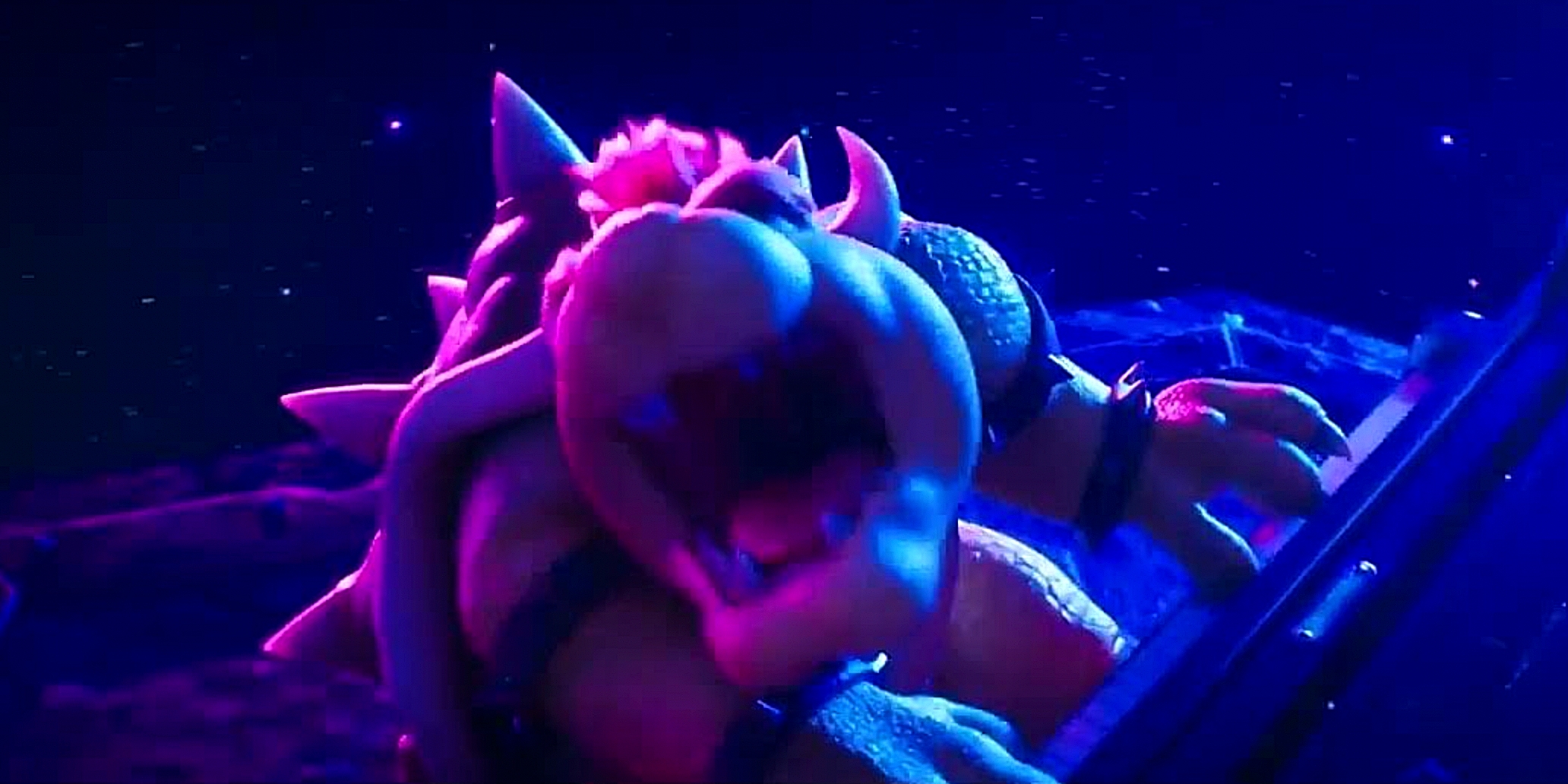 Music and Lyrics by Jack Black, Aaron Horvath, Michael Jelenic, Eric Osmond and John Spiker
Music and Lyrics by Jack Black, Aaron Horvath, Michael Jelenic, Eric Osmond and John Spiker
Performed by Jack Black
Yes, really. After scoring a Golden Globe nomination, some believed the Academy would follow suit and nominate “Peaches,” Bowser’s love ballad for Princess Peach from “The Super Mario Bros. Movie.” Lord knows Universal tried to make it happen, given the song’s vitality earlier this year. However, the song missed the shortlist altogether in the end. It’s not hard to see why – the song is patently silly and has far more minimal production than other shortlisted songs – and yet, we can’t help but feel this branch needs to embrace its funny bone better. These are the same people who have nominated songs like “Everything is Awesome!” from “The Lego Movie” and “I Won’t Let You Throw Yourself Away” from “Toy Story 4.” They even shortlisted “I’m Just Ken” from “Barbie,” a song that is cut from the exact same spiritual cloth, but Jack Black is where we draw the line.
“Peaches” is one of the few lucidly goofy moments in an otherwise by-the-numbers cash grab, which makes it worth recognizing in and of itself; there are countless ways the filmmakers could have acknowledged Nintendo’s most persistent love affair, but they chose to play it up with the absurdity it required for a modern audience. Jack Black as Bowser was already sublime casting, but using the comedian’s musical talents to turn Bowser into a raging simp is simply inspiring. Channeling his hard rock vocal chops through the vein of Meat Loaf, Black thoroughly commits to the bit on-screen without a shred of irony. The man has even performed the song in concert and costume multiple times, yet the man’s willingness to be laughed at has somehow equated to a lack of legitimacy. Black is an immensely skilled performer, let alone one of the most beloved comedians of the twentieth century, and he deserves to be awarded for his talents. However lyrically sparse “Peaches” may be (arguably by design), it is made memorable thanks to the man singing it, which arguably is the appeal for most of the nominated songs to begin with.
“Camp Isn’t Home” from “Theater Camp”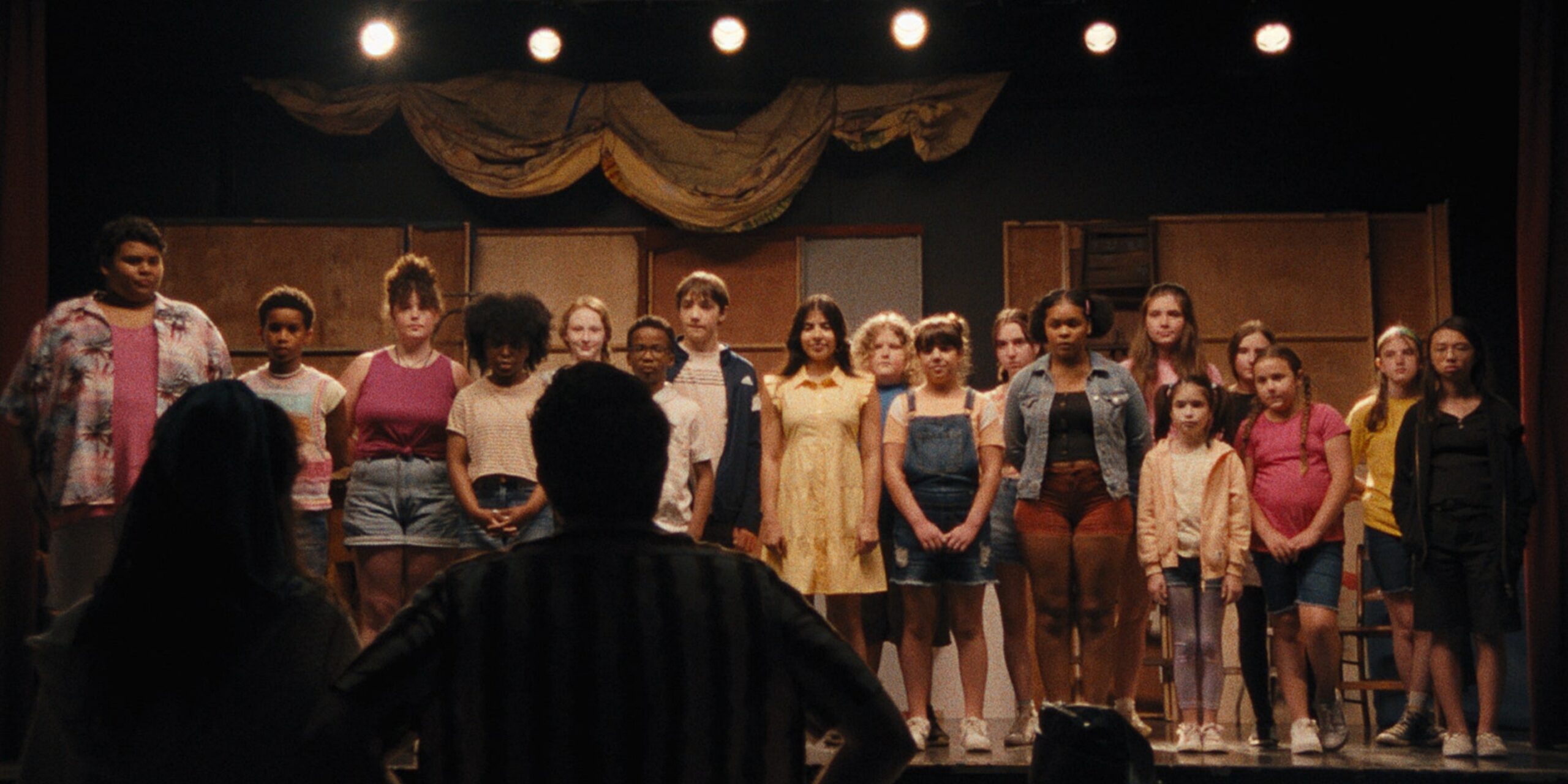 Music and Lyrics by Ben Platt, Noah Galvin, Molly Gordon, Nick Lieberman, Mark Sonnenblick
Music and Lyrics by Ben Platt, Noah Galvin, Molly Gordon, Nick Lieberman, Mark Sonnenblick
Performed by The Cast of Theater Camp
Any theater-lover surely got chills experiencing the culminating moments of “Joan, Still” from “Theater Camp,” a full-blown musical written by the film’s creative team as well as co-composer Mark Sonnenblick. The film’s soundtrack features each song in its full length, proving that the filmmakers put time and work into essentially crafting an original, hilarious, farcical musical. However, for time’s sake, the show is presented as a medley of songs, with its finale, “Camp Isn’t Home,” presented in its entirety. However, the song first appears as improvised by Rebecca-Diane (Molly Gordon) as a way to save face when confronted by Amos (Ben Platt) about her lack of commitment to the camp’s original musical. It’s a gut-busting moment of mediocrity and self-indulgence, one of many that makes “Theater Camp” one of the year’s best comedies to theater kids and theater haters alike.
This leaves you unprepared for it to come back as the musical’s actual closing number, an ensemble piece that pays tribute to the power of summer theater programs and, more broadly, communities that foster children’s love for the arts. Expanded with more meaningful lyrics and swelling harmonies, not to mention plenty more in-jokes for good measure, the song will have you ignoring its absurd chorus (“Camp isn’t home, but is it, kind of? Kind of, it is. I think it kind of is”) and instead fully giving in to its emotional sincerity. It’s emblematic of the entire film, a farce as eager to make fun of its own community as it is to celebrate it and does so simultaneously and miraculously. “Camp Isn’t Home” is a love letter to the people we love to hate but hate that we love, only elevated further by the film’s wildly talented slate of young stars belting their hearts out on top of a simple but breathtakingly effective arrangement. The song may be about theater, but its larger celebration of the arts would have made it a loving shortlist inclusion and a worthy nominee.
“I Hate Myself” or “The Best Part” from “A Good Person”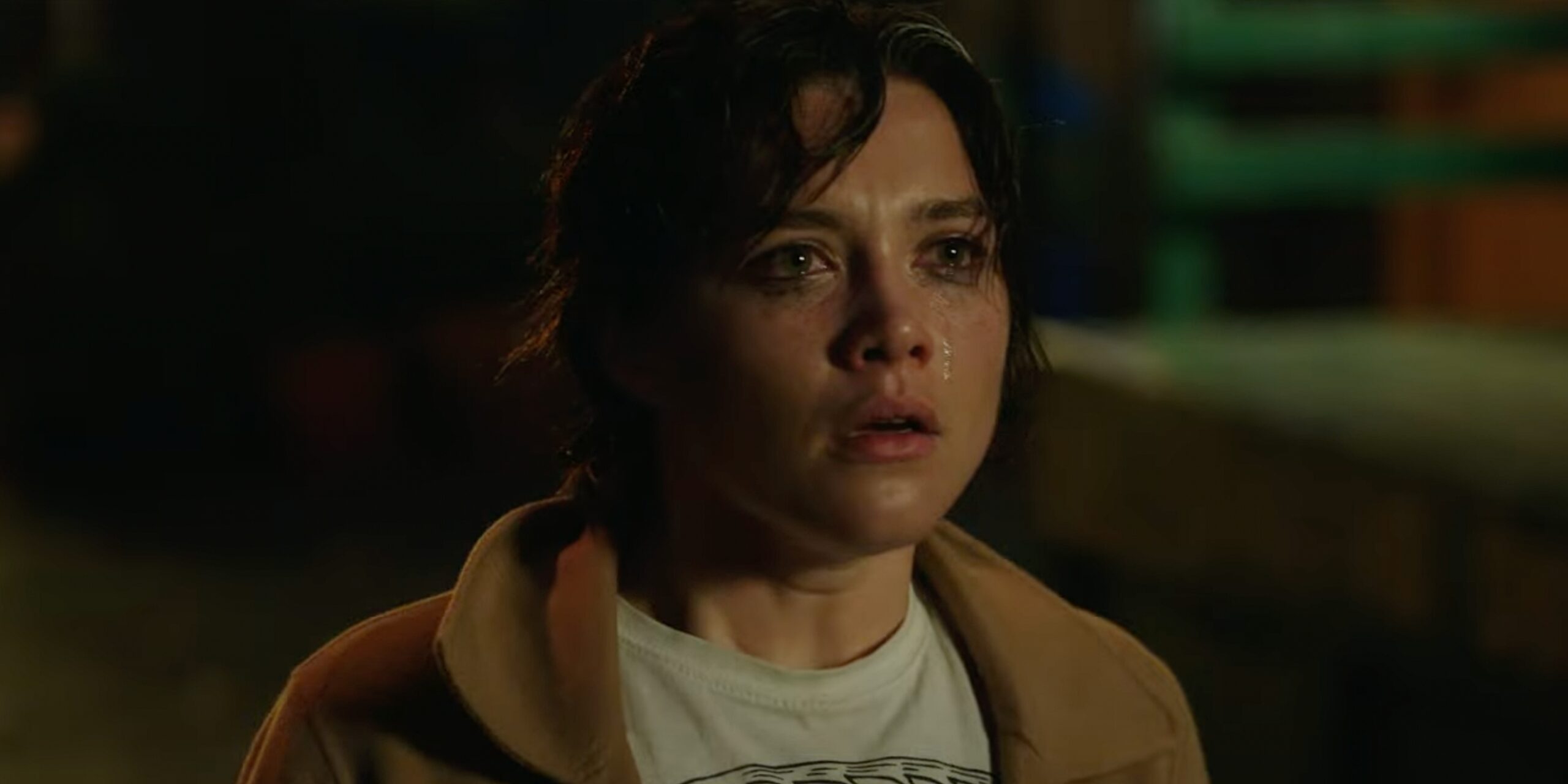 Music and Lyrics by Florence Pugh
Music and Lyrics by Florence Pugh
Performed by Florence Pugh
“A Good Person” was never going to be a major player in the awards race, mainly due to its mixed critical reception and low visibility during its theatrical run, and yet we are still left baffled that MGM did nothing to campaign the film’s original songs. Plenty of films sneak into this category every year; “Asteroid City” and “The Hunger Games: The Ballad of Songbirds & Snakes” snuck in here and will likely receive zero additional nominations (should they even get nominated here). Strong, resonant songs can break through the barrier of awards politics, and few stars have the leverage to make that break like Florence Pugh. The already Oscar-nominated actress is widely beloved across the industry. She is an absolute marvel in Zach Braff’s addiction drama, so good that she could have had a horse in the Best Actress race had the film gotten more attention.
Pugh is indeed busy shooting. Lord knows how many projects, but had MGM done even just a bit of campaigning, it feels like Pugh could have been a shoo-in for this shortlist. Her songs are both originals that were composed, written, and performed by her within the film’s runtime, a remnant of her days as a singer-songwriter before her acting career took off. She later recorded studio versions, but Pugh’s raw, acoustic versions are the most indicative of her talents and the film’s heart-wrenching but beautiful story. Both “I Hate Myself” and “The Best Part” set her on the road to recovery following the film’s events, which sees a young woman bracing with grief and drug addiction after a car accident leaves her fiance’s sister and brother-in-law dead. The songs come straight from the heart of Pugh’s deep character work but also reflect Braff’s script, penned with poetry from a deeply self-loathing individual holding on to others’ empathy and forgiveness. Despite the film’s tonal imbalance and occasionally contrived plotting, Pugh’s songs far exceed these shortcomings and deserve a national stage.
What did you think of the Oscar shortlist for Best Original Song? Are you happy with the songs that made it to the next round? Are you sad to see certain songs excluded? Please check out our latest Oscar Predictions here and let us know your thoughts in the comments section below or on our Twitter account.


